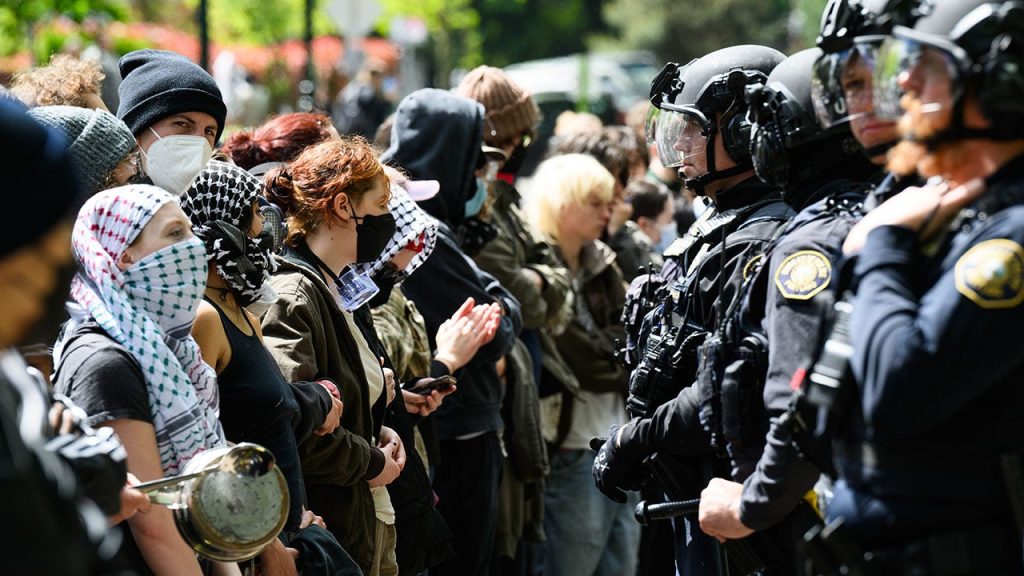Critics have labeled anti-Israel protesters on American college campuses who are concealing their identities behind face coverings as “gutless” and lacking in courage. The use of masks, originally worn for protection during the pandemic, has now become a tool for protesters to hide their faces while causing chaos and destruction. Demonstrations at schools like Columbia University and UCLA have resulted in violence, property damage, and numerous arrests. The Anti-Defamation League’s CEO Jonathan Greenblatt emphasized that hiding behind a mask to intimidate or assault others goes against the principles of courage and poses a danger to the campus community.
Many protesters claim they are wearing masks to safeguard themselves against the spread of coronavirus, while others express concerns about potential exposure by pro-Israel groups accusing them of antisemitism. Some fear being targeted in viral videos and online harassment. Rep. Tim Burchett of Tennessee suggested that some protesters may not even be actual university students, but rather paid instigators attempting to conceal their true identities. Burchett, who sponsored the Unmasking Antifa Act in 2019, criticized these protesters as “gutless” and questioned President Biden’s handling of the issue, calling for stronger actions against those breaking the law.
The tactic of hiding behind masks to carry out protests has sparked controversy and debate, with some condemning the use of face coverings as a means to evade accountability for one’s actions. Critics argue that those who resort to wearing masks during demonstrations are not genuinely exercising their constitutional rights but have ulterior motives. The volatile nature of recent anti-Israel protests has raised concerns about the safety and security of college campuses, as well as the potential for escalation and further violence. Lawmakers like Burchett have called for consequences for those who engage in such disruptive and aggressive behavior.
The use of masks by anti-Israel demonstrators on college campuses adds a layer of complexity to an already contentious issue. While some students defend their choice to wear masks as a precautionary measure or a means of protection, others view it as a way to shield themselves from scrutiny and criticism. The polarizing nature of the Israel-Palestine conflict has fueled tensions and emotions among various groups, leading to confrontations and clashes on campuses across the country. The presence of masked protesters has raised questions about their intentions and the impact of their actions on the wider community.
Calls for accountability and transparency in protests continue to grow, with critics urging those involved in anti-Israel demonstrations to take responsibility for their actions. The challenge of balancing free speech rights with public safety concerns remains a key issue in addressing these incidents. Lawmakers and campus officials face the difficult task of enforcing rules and regulations while respecting individuals’ constitutional rights. The debate over the use of masks as a tool for protest highlights the complexities and ethical considerations involved in navigating political activism on college campuses. Addressing the root causes of tensions and finding constructive ways to dialogue and engage in peaceful demonstrations are crucial steps in promoting a safe and inclusive campus environment.


